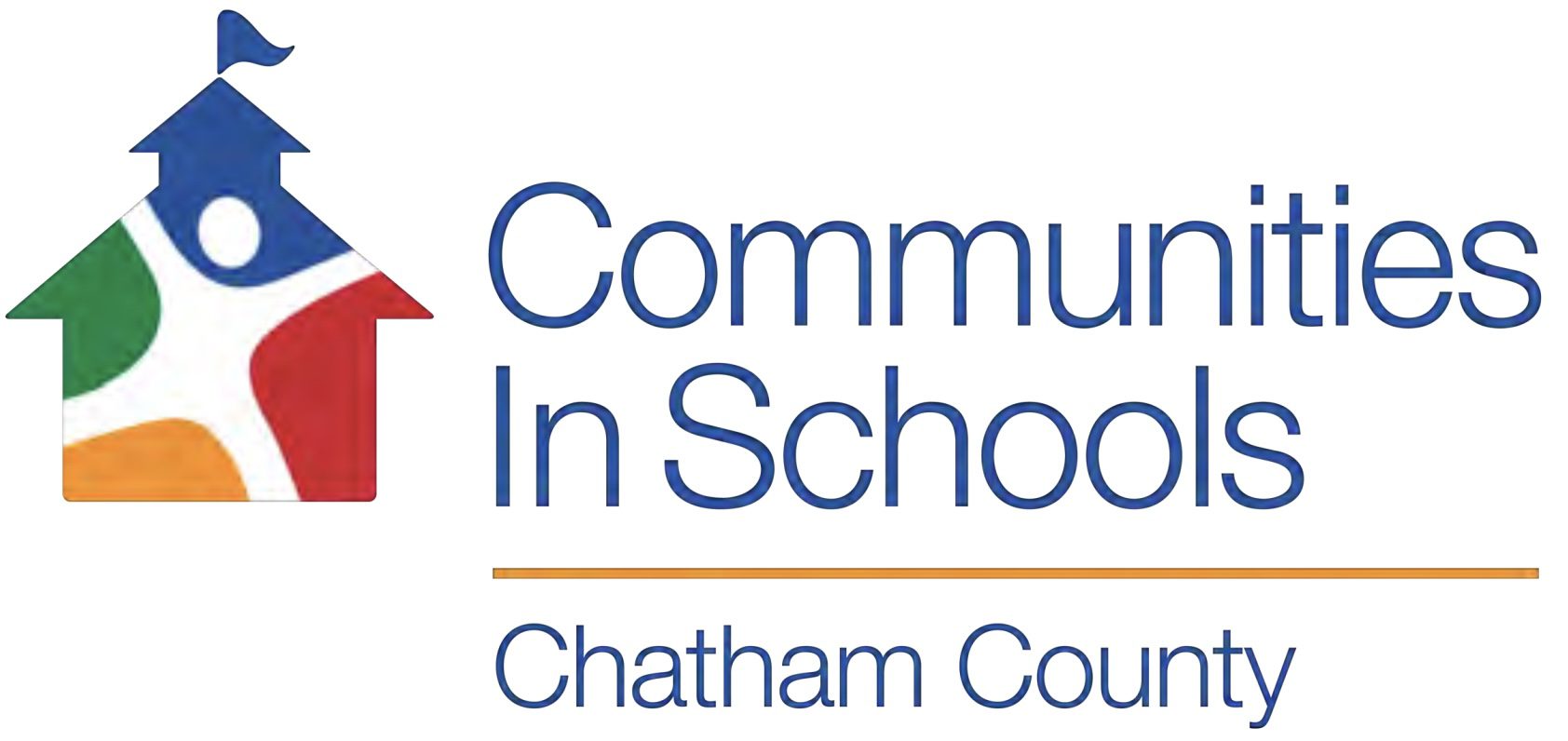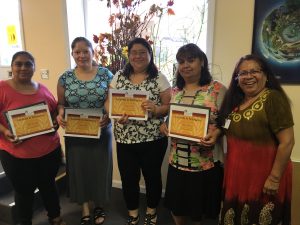What if you were self-employed but found yourself struggling because you didn’t have a training manual on how to effectively manage your employees? What if half of your employees spoke a language that you didn’t understand well? What if your staff broke the company rules and you didn’t have an appropriate discipline strategy? Wouldn’t it be nice to have your own personal coach to teach you on-the-job skills and guide you when your job became overwhelming? Your own personal champion to introduce you to resources and ways of doing things that, if applied, would increase your job performance and satisfaction? The Family Advocacy Program at Communities In Schools of Chatham County (CISCC) serves as this type of coach, as it provides the education, support and assistance that many parents need to thrive in the most important role as a manager they’ll ever have: parenting.
CISCC’s Family Advocacy program helps parents and families recognize their strengths, their needs, and available resources that will help the whole family thrive. Youth are referred to the program by juvenile court counselors of Chatham County when the youth—ages 8-16—are on probation, deferred prosecution for breaking the law, or because they have become undisciplined, meaning they are beyond the control of their parent. Family Advocacy is one piece of a comprehensive therapeutic plan that juvenile counselors create.
Maria Soto, long-time Family Advocate with CISCC, and Bieisy Santiago, Program Assistant, provide services to families according to what each family needs and when each family is available. Maria and Bieisy are both steeped in the community where families know and trust them. Maria meets with families at least two hours each week, sometimes in their homes and sometimes in the office. Maria talks with parents about specific issues they are dealing with such as how best to communicate with their children’s teachers and what the legal ramifications are when students miss too many days of school. She helps them navigate appointments with community agencies they are already involved with or may need to be connected with. Since the majority of Family Advocacy participants are Latino, Maria interprets for those who don’t have strong English language skills. One-on-one or small-group tutoring is offered to youth who need academic support, and parenting classes are required. Maria and Bieisy also assist families participating in other CISCC programs such as the Mentoring Program and The Learning Institute. Families are connected to educational and recreational workshops, field trips, and summer camp placement for youth. The Family Advocacy program teaches valuable skills for the whole family so that the youth and adults increase a their ability to manage difficult situations and make better decisions in the classroom, at home, with peers, and in the community.
In addition to being a Child/Family/Team facilitator, Maria is a certified facilitator for the nationally recognized Parenting Matters and Strengthening Families programs. She and Bieisy lead Parenting Matters, an eight-week, sixteen-hour parenting course that focuses on discipline, helping parents manage their stress, and helping parents improve communication with their children. Parenting Matters classes are offered during the day for parents who work evenings, and they are offered in the evenings for parents who work during the day.
These parenting sessions are times to learn and to socialize. Maria said her parents often feel isolated, and the weekly classes provide a time to come together for support. They realize that they aren’t the only ones with children that behave the way their children do. One participant said, “I have learned a lot. I learn from other people’s experiences. We have different experiences but at the same time we have shared experiences and being a part of this group every week helps us know that we are not alone.” They become empowered as parents to set clear boundaries with their children and they are able to better enforce consequences. Maria said some parents come back to the parenting groups even after the course ends. They may pop in seeking support and encouragement for a specific issue, or they may come back to the group to provide support for other parents. The parenting group becomes a positive, supportive network. Maria said, “We see better results for the kids when parents are engaged.”
Acculturation can be difficult when the parents speak one language and the children are bilingual. Parents sometimes feel out of the loop and The Family Advocacy program helps bring them together and become engaged. We are seeing positive impacts. Parents have shared that as a result of participating in the Family Advocacy program, their relationships with their children have improved. They feel better equipped to set limits and are more confident, overall, in dealing with family problems that arise. That’s the point, because parenting doesn’t come with a training manual. Thankfully, Family Advocacy fills a crucial role in helping parents succeed on the most important job they’ll ever have.
For more information on the Family Advocacy program, contact Maria Soto, Family Advocate at
maria@cischatham.org or (919) 663-0116 ext.405

